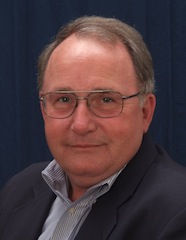
Each week we will be featuring a question and answer with our Director of Staff Development, Ric Cavanagh, M.S.W., about Alzheimer’s disease and what to do when your elderly parent is diagnosed. Keep an eye out every Tuesday for Ric’s Alzheimer’s Q&A.
Have a question for Ric? Visit our “Contact Us” page to submit your question and Ric’s response will be posted on the EasyLiving blog.
Q: How does the care for a person with Alzheimer’s differ from one without?
A: In many cases, patients with Alzheimer’s may otherwise be in fairly good physical condition, especially in the early stages of the disease. So the care that they require involves less “hands on care” and more companionship, socialization, mental stimulation, etc. They will likely need help with a bath, meal preparation, perhaps assuring that they are taking their medications, but these activities will only take a short period of time on a daily or every other day basis.
But unlike patients needing a lot of nursing care, people with Alzheimer’s often do not realize that they need any help. They may view the caregiver as someone that is being forced on them. They are angry that they need help and just want things to get back to normal (i.e. driving their own car, living independently, etc.).
So the caregiver needs to have great sensitivity to the needs of the loved one. They need to be creative in providing services in a way that encourages your mom or dad to participate. For instance, instead of saying that we need to wash your hair, the caregiver says we want to give you some spa treatments: “Let’s lightly message your arms and legs. Let’s wash your hair and gently message your scalp. That will feel sooo good.” The caregiver can also help your loved one enjoy some music, do some art, help with cooking, etc. All of this enhances your loved one’s life, makes them remain calm and happy, and still ensures that basic physical and emotional needs are met. This is much more than providing routine nursing services.






